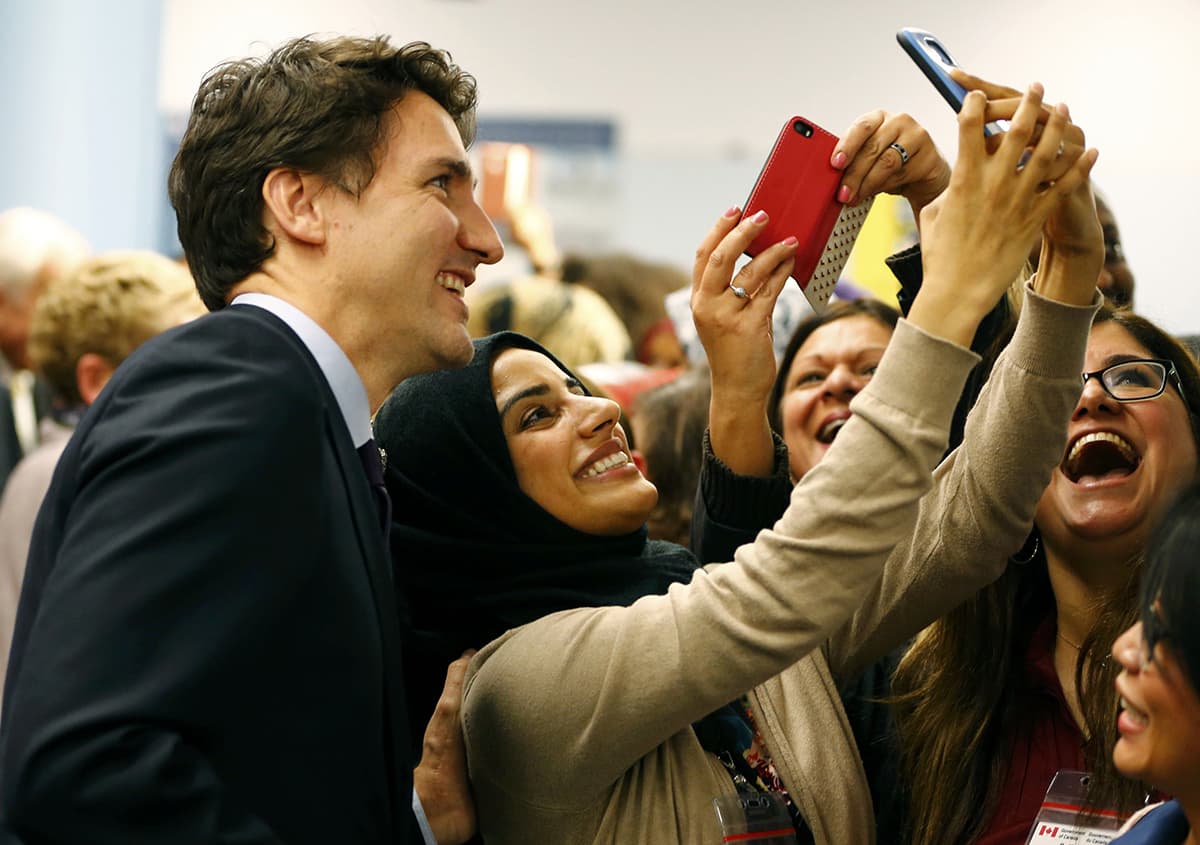On Jan. 31, Donald Trump signed an Executive Order limiting immigration from seven majority Muslim countries. The order also suspended the United States’ acceptance of refugees for 120 days, and barred Syrian refugees completely. Trump’s order ignores the 1951 Geneva Convention, which recommends that participating governments provide asylum to refugees without considering “race, religion, or country of origin.” The ban has since been blocked as unconstitutional by a U.S. federal court ruling; nonetheless, the reverberations of such a sweeping and exclusionary move persist. Amid the outrage that followed the order, Prime Minister Justin Trudeau took to Twitter, declaring that Canada welcomes all refugees, regardless of faith. Trudeau’s feel-good tweet, however, is undermined by his government, which has placed its own cap on refugee admission. Even more troublesome is the fact the Canada-United States border continues to operate under the Safe Third Party Agreement. The Agreement requires that refugees request protection in the first safe country that they arrive in—meaning Canada cannot legally accept asylum seekers turned away from the United States. Should Trump follow through on his promise to overturn the court’s decision and reinstate the ban, it seems that those denied entry to the U.S. can find only false hopes in Canada.
It the responsibility of Canadian citizens have a responsibility to hold their government accountable for its lack of concessions to refugees. In a political climate where “alternative facts” have taken precedence over honesty, it is crucial that the Trudeau administration maintain a standard of integrity and compassion. If the people of Canada do not see this integrity and compassion, they must demand it.
Given the global political climate, political participation is more vital than ever. The power inherent in political speech is apparent in the events of the last week. After Trudeau’s tweet, Canadians took action. An online petition calling for the repeal of the Safe Third Country Agreement currently has 38,583 signatures, and a movement has emerged encouraging constituents to contact their MPs to demand change. Locally, McGill Law students are providing legal services to those affected by the ban at Trudeau airport, and organizing a letter writing campaign to protest the Executive Order. This coincides with a nationwide effort among law students to make legal resources accessible to anyone who needs them in the wake of the Executive Order. Protesting, volunteering, contacting local representatives are all examples of political action that has the potential to minimize the ban’s negative consequences. By refusing to stand idly by, Canadians can keep their own government transparent and, by extension, demand equivalent accountability from the Trump administration.
The rhetoric of “alternative facts” allows for the perpetration of harmful lies, such as the idea that a significant amount of Syrian refugees are terrorists, or, in Trump’s words, “the very threats our soldiers are fighting overseas.” Canada must do its part in emphasizing that a government that lies is not normal or acceptable. It should not permit a political landscape that facilitates the formation of national myths that are disconnected from reality. Leading by example is essential to setting this standard. To combat the political culture of falsehood that the Trump administration propagates, and to impress upon the U.S government that their decisions do not exist in a vacuum, the people of Canada must demand transparency from their own government. If the Trudeau administration strives to be humanitarian, it needs to be transparent with its constituents first and foremost. When it is not honest, Canadians have the power to put pressure on their government, and they should use that power.
The nature of a representative system ensures that politicians have a responsibility towards those they represent. They are supposed to empower their constituents, to amplify these citizens’ voices and implement policy that caters to their needs. It is a representative’s job to listen—but it is also the citizen’s job to speak. Now more than ever, Canadians need to ensure that their government represents their ideals in both actions and words. If those ideals are compassion and honesty, then the responsibility falls on Canadian citizens to ensure that Canada supports the people that the United States does not.








